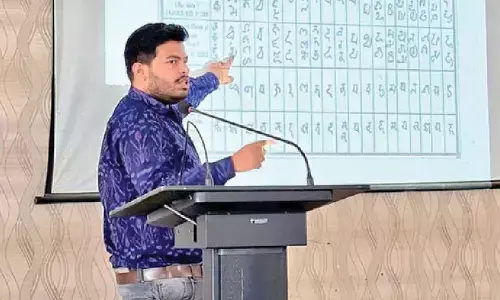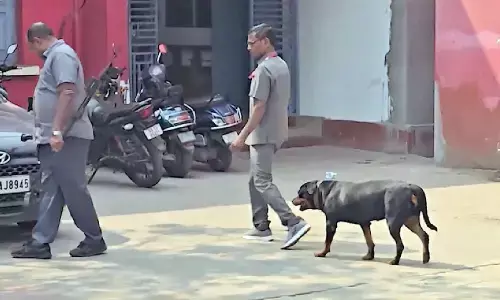No fear of cyber laws emboldens social media violators

cyber laws emboldens social media violators
Bengaluru: Recently, the Karnataka Police arrested a constable on charges of raping a minor girl who had left her home to meet an Instagram friend.
A 37-year-old techie from RT Nagar in Bengaluru filed a police complaint, alleging that conmen duped him of Rs 3.5 lakh promising to arrange a women for him through dating apps.
A Karnataka court had awarded punishment of life imprisonment for a police constable who blackmailed a minor girl, lured her into dirty talks and pushed the girl to end her life in Dakshina Kannada district. The accused had befriended the girl through Facebook.
The Karnataka police arrested a transgender on charges of cheating a young woman by posing as a man on Facebook account in Vitla town of Dakshina Kannada district.
A fashion designing graduate lodged a complaint with Madanayakanahalli police station in the outskirts of Bengaluru on the night of January 19. She has complained that her Facebook friend raped her in his car and then took her nude videos and photos.
All the above incidents have taken place in recent months, with a majority of them taking place in Bengaluru. The police and experts point out one common factor in all these incidents of crime -- the attraction of social media proved fatal to them. S.K. Umesh, a retired SP and author, while talking to IANS explained that the perpetrators of traditional crimes knew about punishments, policing in connection with cases related to IPC sections. They had fear. In crimes committed using social media, it is not possible to arrest the accused immediately.
Secondly, there is a lack of knowledge about cyber laws. They need to be simplified. If they are not simplified, cyber crime police won't be able to get convictions, he says.
The procedures require experts and there is a shortage of skilled staff. Charge sheets are being filed and it won't stand in the court due to procedural lapse, Umesh opines.
The laws are rigid. The police are dependent on courts not accepting digital documents. There is lacunae regarding cyber laws. The arrested are thinking that they will get bail in one day and becoming emboldened, he explained.
This problem is being faced by the whole world. It is very difficult to determine what is good and what is bad. Anyone can see anything on social media. If restricted, children develop more attraction. It is complicated, Umesh says.
Kiran Prasad, a core committee member of the Association of Primary and Secondary Schools of Karnataka (KAMS) and founder of the Vidya Vaibhav group of schools, explained that social media definitely has an influence on children.
"If you look at the statements given by the accused juvenile delinquents they outrightly state they are influenced by social media," says Prasad.
"The only thing that can be done is educating the children on what is good and what is bad. Second thing, try to talk to children transparently. Many things we don't want to talk to children about. There are many things like this. It will create a gap and there is peer pressure. Even cartoons are violent today, the �F' word has become so common."
A. Sridhara, a reknowned psychologist, narrates about an incident in Uttar Pradesh where a person made a video of his wife commiting suicide. "This man had completely videographed her while she killed herself and uploaded the video. He watched his wife dying. Whenever there is an accident the first thing you do is capture the incident and forget about coming to the rescue. They want to record, when they do that there is absolutely no feeling of remorse," he explains.
"My older friend got a call from a Play Rummy executive at the time of the funeral. when he slammed the person for calling, she told him not to scold and just say no. Our personal cultural demeanour and feeling for other human beings is not present. There is only pleasure and profit rules," he says.
"Nothing is more disturbing than a three-year-old baby being raped or a 90-year-old woman being violated. So, there is a problem with our sense of understanding of other human beings," he adds.
"Individual moralities have stooped down. There is no system with us to reinforce them. If you are guilty, you will go to your mobile to watch a programme.
There is nothing like repentance, there is no room." Sridhara opines that "our culture, education system, and personal values must be increased. However it is not visible now... This is one of the things causing a lot of cruel behaviour for which people are not feeling guilty".















